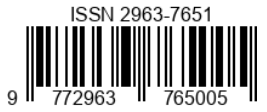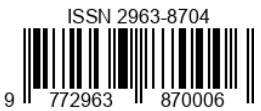Sistem Pewarisan Menurut Hukum Perdata
DOI:
https://doi.org/10.55606/jhpis.v1i3.921Keywords:
Legitieme Portie, KUHPerdata, Code of Civil Law, Inheritance Law, HeirAbstract
The development of the era, which has experienced many changes from time to time, does not necessarily change the heritage that exists in the lives of people in Indonesia. The evolution of generation does not cause changes to the legacy system that exists in Indonesia. In the Civil Code, there are 3 principles that describe heirs who are entitled to and can obtain inheritance distribution according to the Civil Code inheritance system. The legacy of the heir can not only be in the form of valuable assets, but can also be tangible objects, intangible objects or just a testamentary message conveyed. In life in society, the division of inheritance creates conflict between families which causes the division of one family. In dealing with inheritance problems that will cause conflict between families, the government allows lawsuits related to this inheritance. The Civil Code regulates the principles governing heirs, namely the personal principle, the bilateral principle and the principle of equalization. In addition to regulating these 3 principles, the Civil Code also regulates the elements included in the law of inheritance, namely there are heirs, heirs and also inherited assets as assets that will be delegated by the heir to the heirs. Heirs are also classified into 4 groups, namely Group I, Group II, Group III, and group 4. In addition, the Civil Code also regulates the absolute share of assets in inheritance. This research will use a normative legal research method that uses literature review as an effort to find the required data. Reviewing legal documents that focus on Legislation.
Downloads
References
A. Buku
Amanat, Anasitus. (2001). Membagi Warisan Berdasarkan Pasal-Pasal Hukum Perdata BW, Jakarta : PT. Raja Grafindo Persada
Darmabrata, W. (2003). Hukum Perdata Asas-Asas Hukum Warisan. Universitas Indonesia.
H.S., Salim. (2002). Pengantar Hukum Perdata Tertulis (BW), Jakarta : Sinar Grafika
Suparman, E. (2007). Hukum Warisan Indonesia. Retika Aditama.
Sudarsono. (1994). Hukum Waris dan Sistem Bilateral. Jakarta: Rineka Cipta, hal. 15
Marzuki, M. (2017). Penelitian Hukum: Edisi Revisi. Prenada Media
Meliala, Djaja. (2018). Hukum Waris Menurut Kitab Undang-Undang Hukum Perdata, Bandung : Nuansa Aulia
Peragin, Effendi. (1997). Hukum Waris, Jakarta : Raja Grafindo Persada
B. Jurnal
Salamba, P. (2017). Tinjauan Hukum Mengenai Pembagian Harta Warisan Menurut KUHPerdata. LEX ADMINISTRATUM, 5(6).
Rudito, S. (2015). Penerapan Legitime Fortie (Bagian Mutlak) Dalam Pembagian Warisan Menurut Kuh Perdata (Doctoral dissertation, Tadulako University).
Suwarni, Ni Luh Gede, dkk. (2020). Pembagian Harta Warisan Ditinjau Dari Kitab Undang-Undang Hukum Perdata. Jurnal Interpretasi Hukum. 1(2).
C. Sumber Lain
Kitab Undang-Undang Hukum Perdata.








